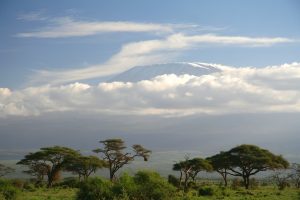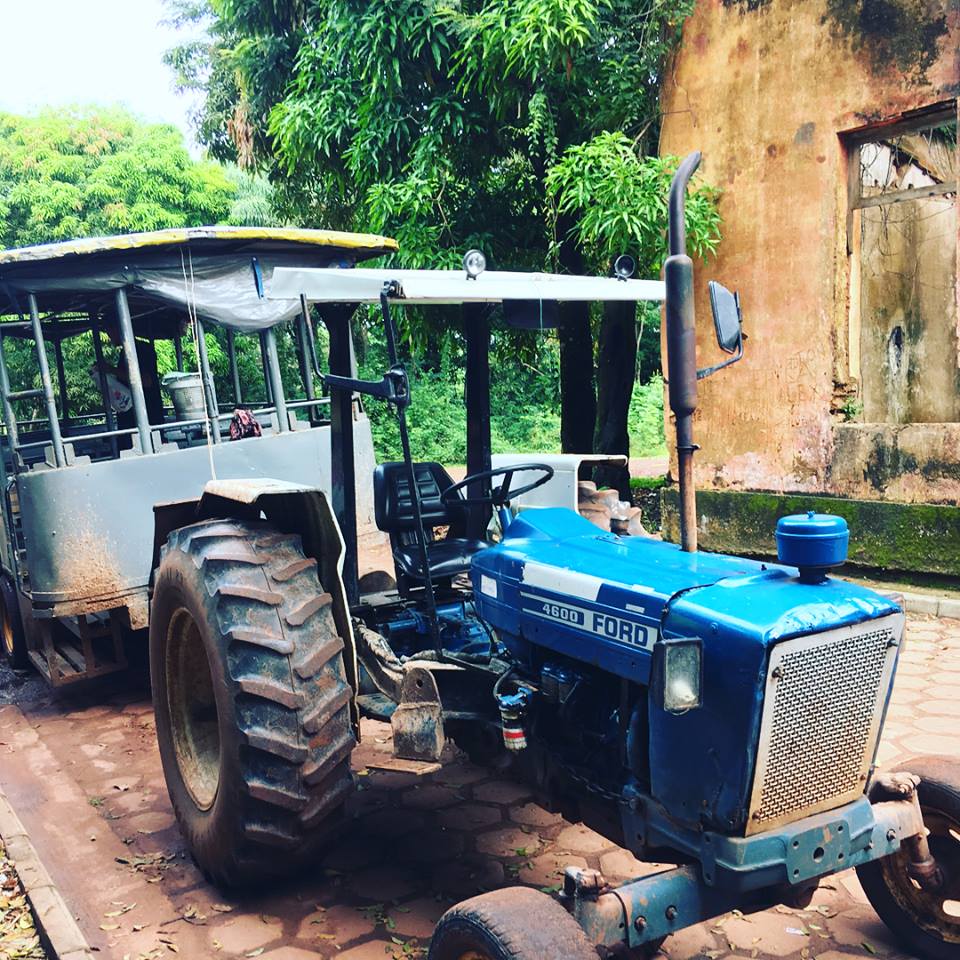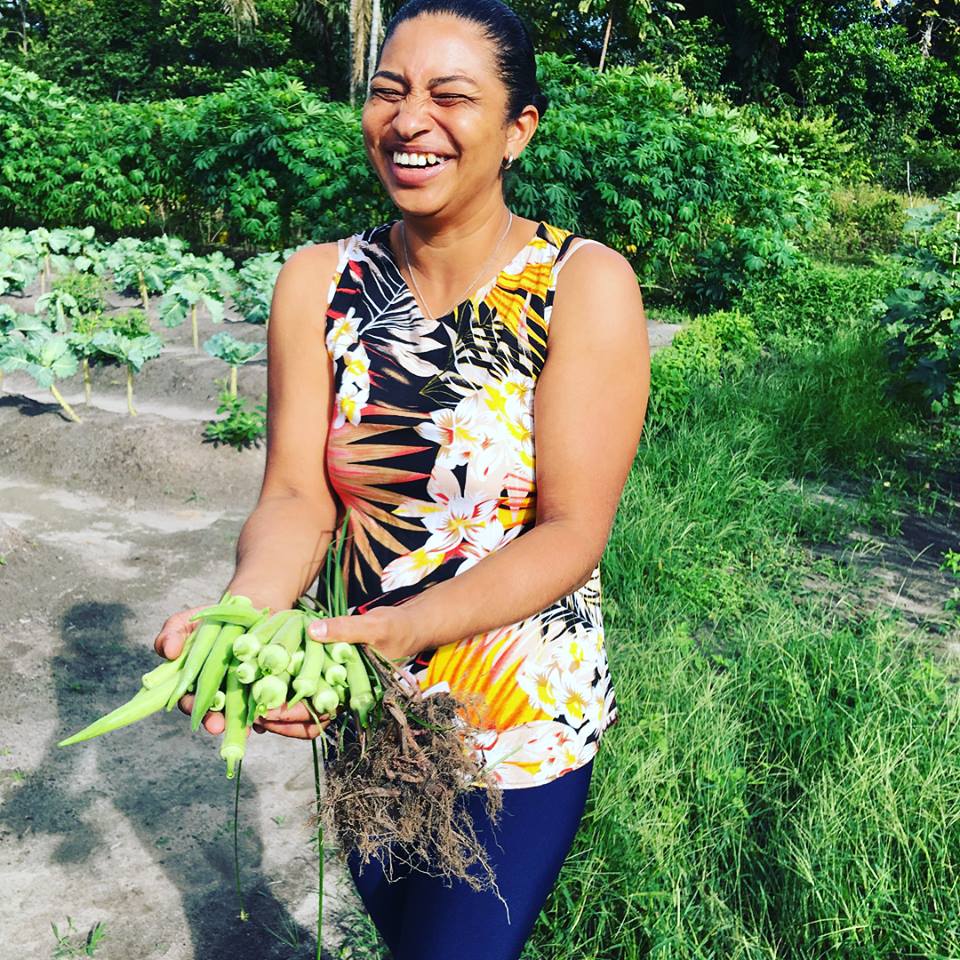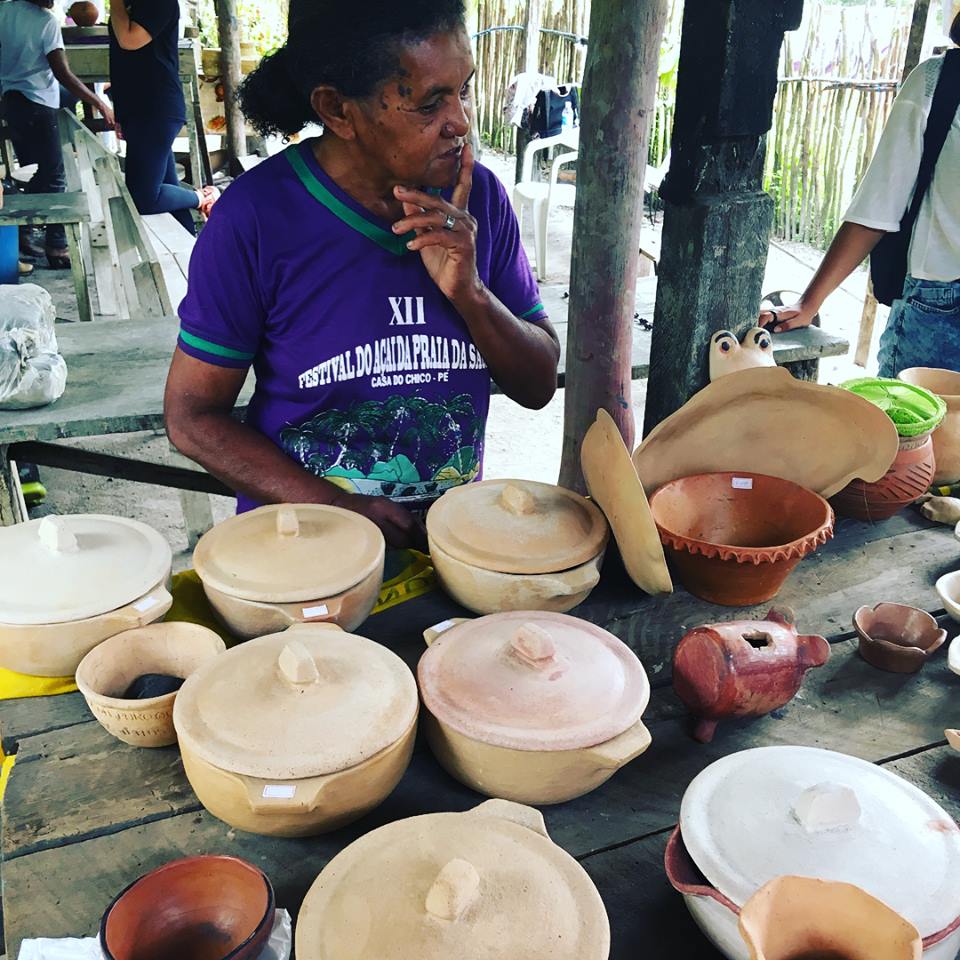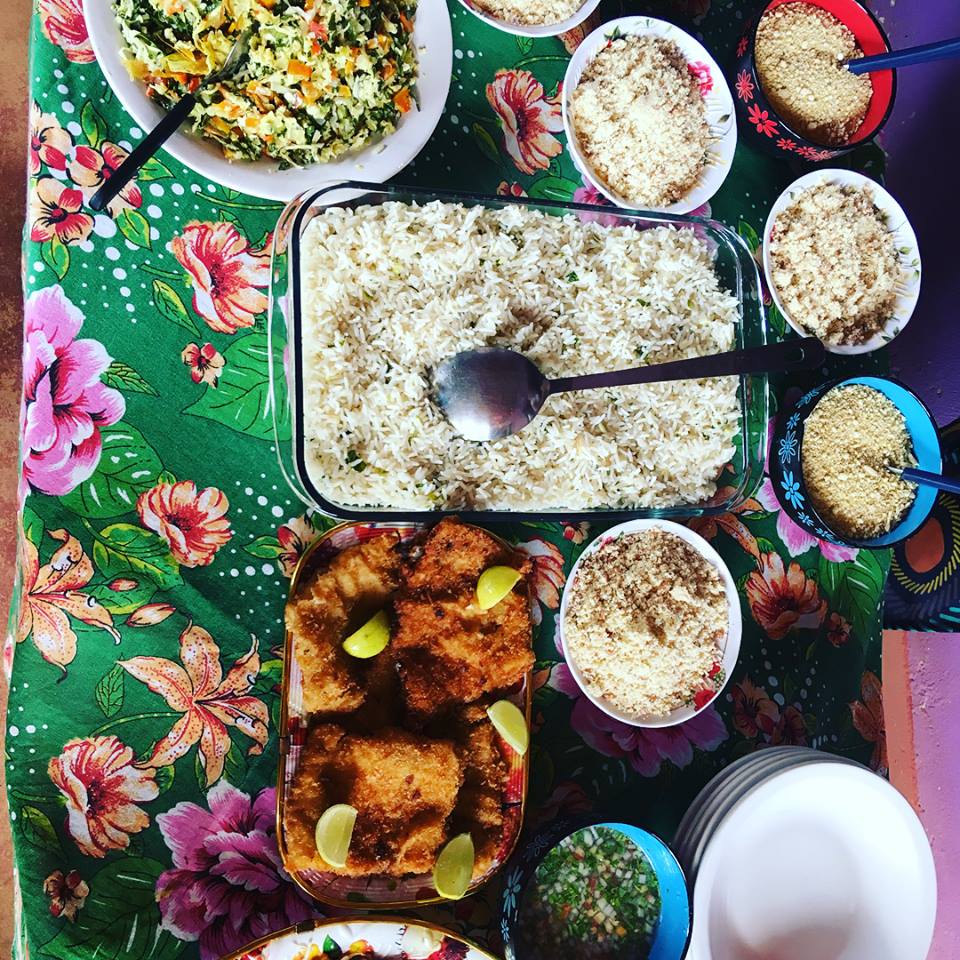Our journey deeper into the Amazon continues; the next four days we spend on Cotijuba Island with our hosts from MMIB (Movimento de Mulheres das Ilhas de Belem, Belem Islands Women’s Movement).
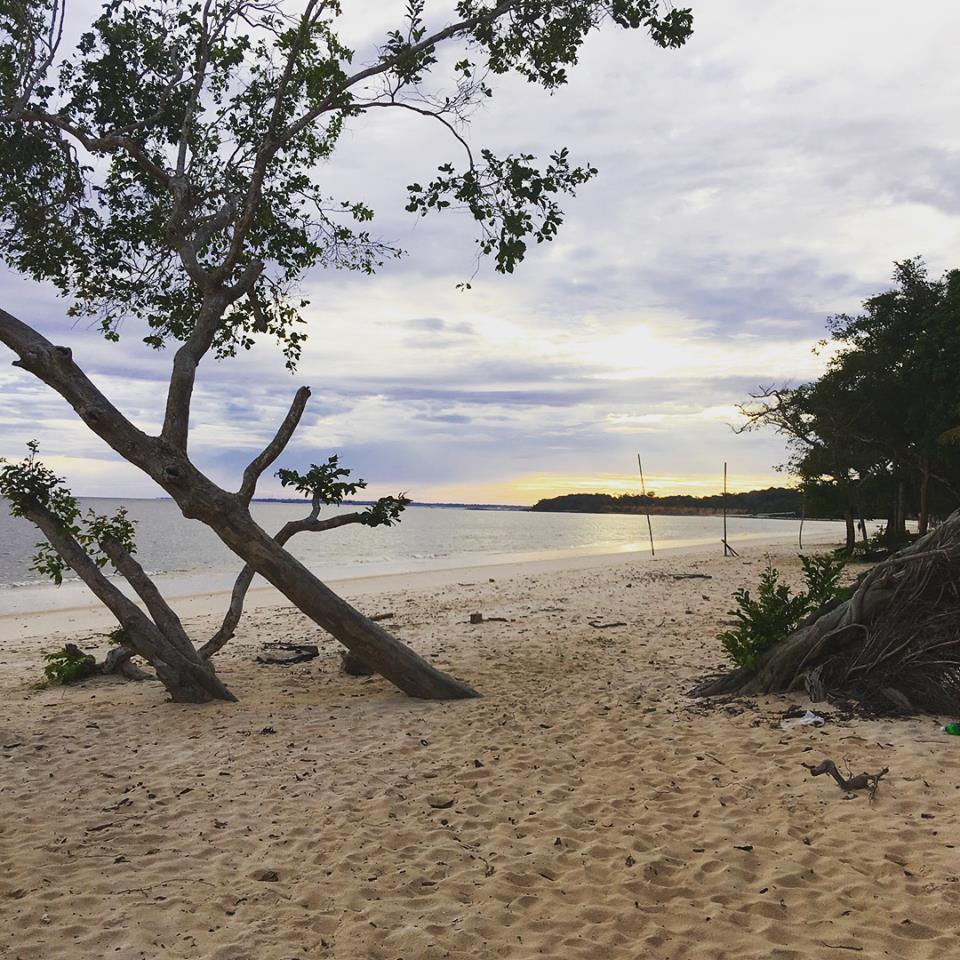
From Belem, we head north to Porto Icoaraci, a district known as the Mango tree city, where we catch our boat to the island of Cotijuba (boat travel time approx. 1h20m). The port is busy with vendors hauling fish and acai berries here and there, inquisitive dogs eye us with heads cocked to the side, hammocks are strung out on fishing boat decks where we can see men catching a moment of rest in the already hot morning sun.
Cotijuba Island has 11 beaches, adding up to 20 km (12 miles) in total. It is the third largest island of the Belem archipelago and the first inhabitants were the Tupinambá Indians, who also named the island. The name Cotijuba, comes from the tupi-guarani language which means golden path (coti = path and juba = yellow or golden).
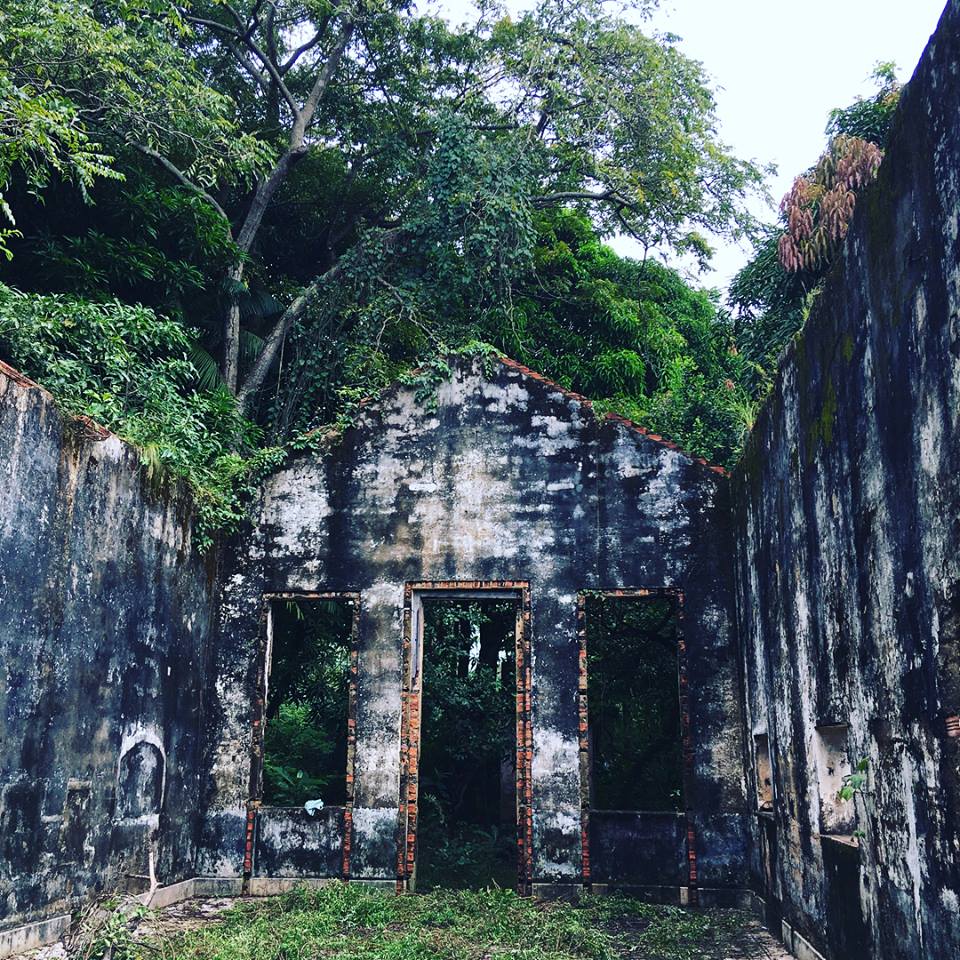
Upon arrival on Cotijuba, we are met by a couple of our local hosts with warm smiles. We step off our vessel and immediately encounter the ruins of an old colonial structure that the jungle has started to reclaim as its own; trees are sprouting out of the walls, the Portuguese tiles no longer have mortar between them, but rather, thick tufts of grass and vines hang from the remainder of the roofs. Cotijuba was originally home to a juvenile jail and this building was the main jail. Later, after the closing of the jail, the inhabitants of the island were taught to farm and fish and the island eventually turned into a humble fishing and agricultural community, which it continues to be today.
Our hosts quickly show us around the ruins and then ask if we are ready to go to the MMIB headquarters. Our ride to the other side of the island: the local “bus”- a tractor pulling a trolley, locally called a bonde. On Cotijuba there is a strict law against cars. The transport options are: bicycle, motorcycle, donkey-drawn carriage or Bonde.
We bump along the red dirt roads through the lush jungle of the island passing, every so often, streets lined with groupings of colorful little wooden houses selling fruits, vegetables, clothes, ice, local water buffalo cheese, and chopps (popsicles).
Upon arrival at MMIB we are welcomed by a group of some of the most inspiring and strong women I have ever had the pleasure of meeting. Dona Antonia, the founder and current head of MMIB, greets us and gives us an overview of MMIB and its history. MMIB is in one word: multifaceted. It is an agricultural co-op between local farmers (primarily women farmers). They host workshops on gastronomy and bio-jewelry (jewelry made from natural materials, just like the okulary przeciwsłoneczne wooden sunglasses). They have a store where they sell local women’s handicrafts. They have a humble technology center with four computers where locals, who do not have means to access education, can take online higher-education courses, they hold courses in reading and writing for adults (several locals were proud to say that they graduated from this course). They've developed interpretive trails through the island’s forest to teach students (and now tourists as well) about local flora. They cultivate several local herbs that they sell to a national bio-cosmetic company. They host a weekly social hour for the island’s elderly to practice poetry, dance and have lunch together (a huge hit!). And they are now opening their doors to tourism as a way to share their traditions, culture, and gastronomy; many of the women own small pousadas, guesthouses, on the beaches of the island and they host tourists here, taking turns in hosting and collectively sharing the profits.
Over the next four days, we live alongside these incredible women taking part in their workshops, exploring the island with them and sharing extravagant meals highlighting the island’s culinary wonders!
Our final night we have a celebratory luau on the beach with all the women and their families with local music and dancing. Our group and the community are sad to have to say goodbye tomorrow but the friendships made over the past four days are already deeply rooted and we know we will all always carry our collective experiences in our hearts.
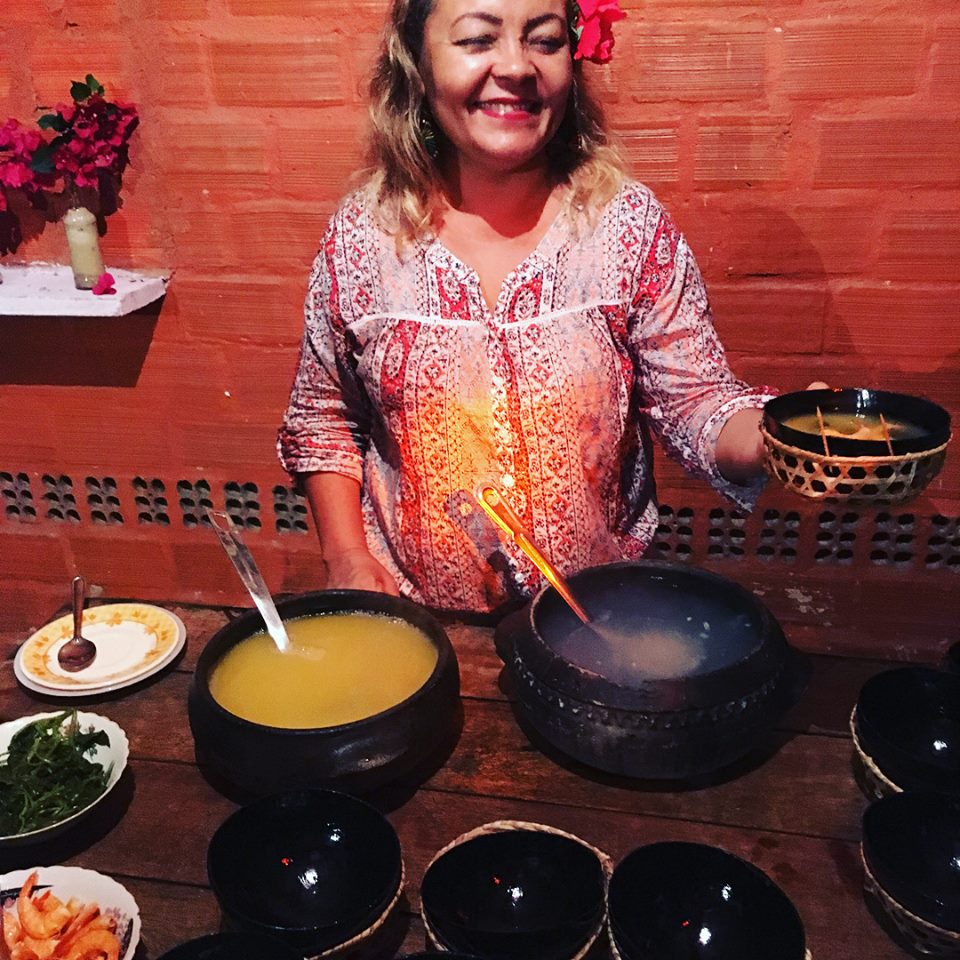
Want to visit Cotijuba and MMIB on your next adventure to Brazil? Check out our Secrets and Spices of the Amazon adventure!
Read more about this adventure in our previous blogs:
Notes From The Field: Secrets and Spices of the Amazon
Treasures of the Amazon: Belem, Brazil
PART II Treasures of the Amazon: Belem, Brazil
Have questions? Want to get involved? Contact us!
Your friendly Brazil expert,
Gretchen
